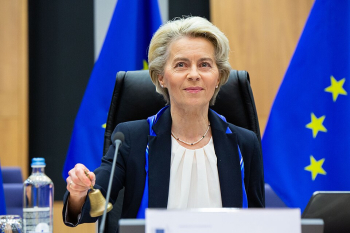
As the European Parliament (MEPs) and EU member states gear up for budget negotiations, MEPs are advocating for a 2025 budget of nearly €201 billion. This will be the first
annual budget following the revision of the EU’s long-term financial framework, which now incorporates higher-than-expected interest repayments for the Next Generation EU recovery package. The Parliament stresses that the repayment costs should not undermine funding for critical programs like Erasmus+.
MEPs are calling for a budget that not only addresses economic development but also targets current challenges affecting people’s lives, boosts competitiveness, and strengthens the EU’s capacity to respond to crises. The Parliament proposes setting the commitment appropriations at nearly €201 billion, which is €1.24 billion more than the European Commission's initial proposal. To address priorities such as health, youth programs, rural development, climate action, and humanitarian support, the Parliament aims to reverse €1.52 billion in cuts proposed by the Council, setting payment appropriations at €153.5 billion.
Managing Next Generation EU Repayment Costs
The European Recovery Instrument (EURI) repayment costs for 2025 are now double the amount previously forecasted. MEPs insist that this increase should not lead to reductions in vital programs like Erasmus+ and research initiatives. They advocate for the use of the newly introduced “EURI cascade mechanism,” a flexible approach in the EU’s budget framework to help manage the growing debt costs without compromising core funding areas.
Key Priorities and Allocations
Victor Negrescu (S&D, Romania), the general rapporteur for the 2025 budget, emphasized the citizen-centric nature of the proposed allocations, which are designed to enhance the quality of life for EU citizens. The proposal includes an additional €110 million for health, €70 million for Erasmus+, €42 million for disaster response, €96 million for agriculture, €120 million for humanitarian aid, and €110 million for supporting regions in the Eastern and Southern Neighbourhood.
Niclas Herbst (EPP, Germany), rapporteur for the other budget sections, highlighted cybersecurity as a pressing concern, along with ensuring adequate staff for EU institutions, particularly to implement the upcoming Artificial Intelligence Act. An increase of €37 million is proposed to enhance the security of the European External Action Service, especially in high-risk locations.
Next Steps and Broader Context
The proposal will now enter a three-week "conciliation" phase with the Council to finalize a budget agreement for 2025, which Parliament will subsequently vote on. The EU budget, distinct from national budgets, is investment-focused, supporting citizens, researchers, NGOs, and businesses across its 27 member countries with a combined population of 450 million.

















